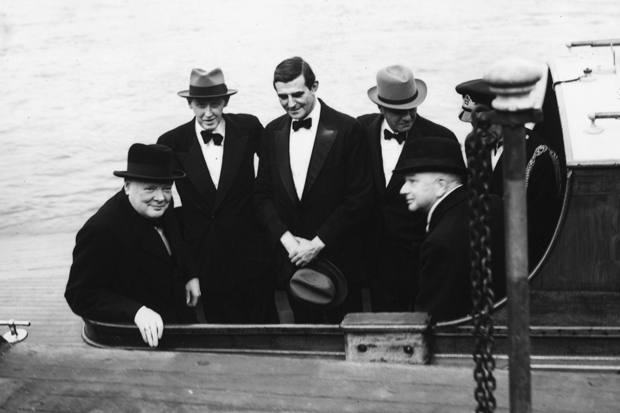In time for the 50th anniversary of Churchill’s death comes this pacy novel about his attempts to persuade the Americans to join the war. It is January 1941; President Roosevelt’s special envoy Harry Hopkins arrives in Blitz-torn London and is subjected to Churchill’s charm offensive. Hopkins, a chain-smoking, hard-drinking man of principle with a dislike of hereditary privilege, finds himself guided down every corridor of power. It’s port and cigars at Downing Street, roast pheasant at Chequers, even champagne in the prime ministerial bathroom while the great man fires questions at him from the tub, ‘a pink, round, gleaming Michelin man’.
In between times, Hopkins drinks at the Black Cat club in Soho with Ed Murrow, the influential American reporter who is having an affair with Churchill’s daughter-in-law, and is taken on a tour of inspection of Britain. Hopkins’s affection and attention are engaged. After a few weeks he no longer sees the beleaguered country as ‘an old lion whose time had come to face the final spear’. His new mission is to convince Roosevelt that, if civilisation is to survive, the US must come to Churchill’s aid. Accompanying Churchill on a morale-raising visit to Glasgow, Hopkins is bounced into giving an after-dinner speech that, arguably, changes the course of the war. On America’s behalf he quotes from the Book of Ruth: ‘Whither thou goest, I will go… Thy people shall be my people… even to the end.’
This speech, like most of the novel, is based on fact. Harry Hopkins is probably the most important wartime figure you’ve never heard of (well, I hadn’t). James MacManus’s great strength is the clarity with which he shows how individuals make history. We believe in the interactions of his historically based characters.








Comments
Join the debate for just £1 a month
Be part of the conversation with other Spectator readers by getting your first three months for £3.
UNLOCK ACCESS Just £1 a monthAlready a subscriber? Log in